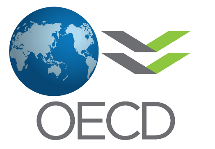| Headquarters: |
Paris, France
|
|
|
| Website: | http://www.oecd.org/ | ||
| Description: | The mission of the Organisation for Economic Co-operation and Development (OECD) is to promote policies that will improve the economic and social well-being of people around the world. | ||
| Summary: |
The OECD's origins date back to 1960, when 18 European countries, plus the United States and Canada, joined forces to create an organization dedicated to economic development. The OECD carries out influential research/consultations and provides policy recommendations. Its work covers areas such as testing, trade, agriculture and development. |
||
| Organization Type: | International Inter-Governmental Organization | ||
| Issue areas covered: |
The OECD and the UN’s Food and Agricultural Organization (FAO) jointly developed guidance on “Guidance for Responsible Agricultural Supply Chains” to help enterprises observe standards of responsible business conduct to ensure that their operations do not lead to adverse impacts and contribute to sustainable development. This includes animal welfare (see Page 26) and specifies that this should be in accordance with or exceeding OIE principles. The OECD recognizes the need to protect animals (“in general and in experimental work”) and takes this into account when developing test guidelines. It accepts the 3Rs principle and works to validate harmonized test methods to prevent duplication of testing. They also prepared in-depth research on global antimicrobial use in the livestock sector. |
||
| Key opportunities and dates for input: |
The annual OECD Forum is a global platform for exchange of ideas, sharing knowledge and building networks. It brings together all stakeholders including government ministers, representatives of international organizations, and leaders of business, trade unions and civil society. The OECD Forum is held in conjunction with the annual ministerial meeting and enables all stakeholders to discuss key issues on the ministerial agenda with government ministers and senior officials of international organizations. |
||
| Requirements for participation: |
The OECD involves civil society in a number of ways, including consultations, conferences and workshops - where civil society organizations are welcome to contribute. Animal protection organizations have formed a coalition - the International Council on Animal Protection - to lobby for alternative methods that can replace, reduce and refine animal use in OECD guidelines and programs. |
||
| Advocacy Opportunities: | |||
|
|||
- Home
- Directory
-
Our Programs
-
Strategic Advocacy Course
- Collaborations
- Humane Education
- International Policy
-
Model Animal Welfare Act
- Get the Book!
- Contents
- Part 1: Guiding Principles - A Broad Overview
- Part 2: Proposal for the Wording of a New Animal Welfare Act
-
Part 3: Explanatory Notes
- Notes to Chapter 1: Preliminary Provisions
- Notes to Chapter 2: General Provisions
- Notes to Chapter 3: Keeping of Animals/Care of Animals
- Notes to Chapter 4: Specific Categories of Animal Use
- Notes to Chapter 5: Implementation and Enforcement Provisions
- Notes to Chapter 6: Penal and Final/Concluding Provisions
- Constitution Project
-
Strategic Advocacy Course
-
Resources
- Events
- About Us
- Blog
From the Blog
-
The World Federation for Animals: A New Chapter for World Animal Net +
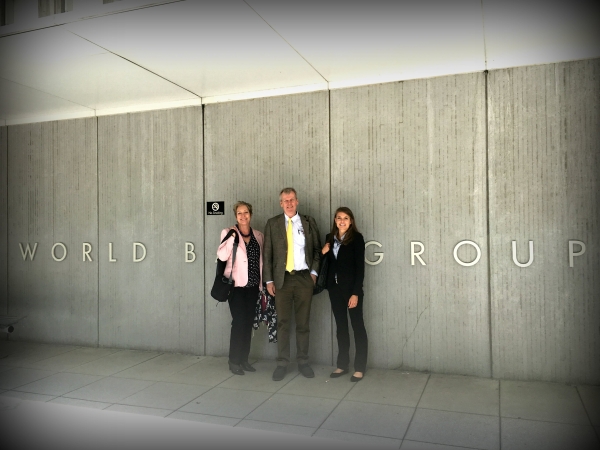 In 2013, I joined World Animal Net (WAN) alongside Akisha… Read More
In 2013, I joined World Animal Net (WAN) alongside Akisha… Read More
-
Launching an "Animals' Manifesto" for World Animal Day +
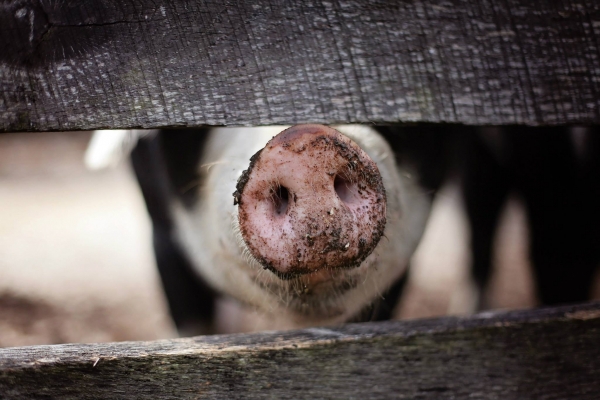 World Animal Net has brought together animal protection and environmental… Read More
World Animal Net has brought together animal protection and environmental… Read More
-
Join Asia for Animals in celebrating World Farmed Animal Day +
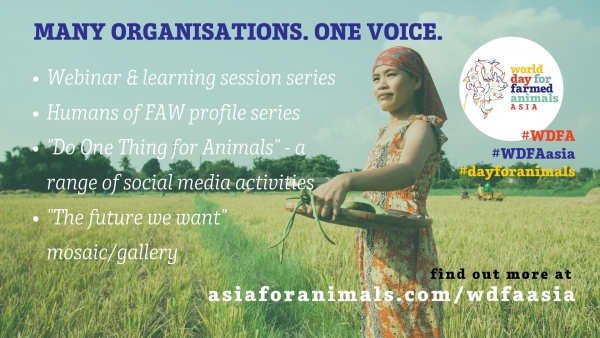 World Day for Farmed Animals Asia is on October 2nd… Read More
World Day for Farmed Animals Asia is on October 2nd… Read More
-
COVID-19 and the Development of the New Global Biodiversity Framework +
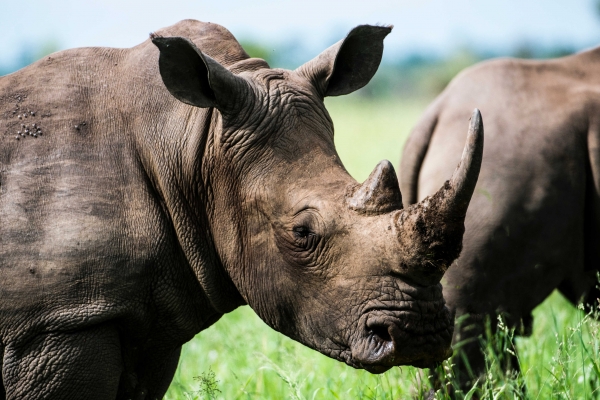 The Convention on Biological Diversity (CBD) is an international agreement… Read More
The Convention on Biological Diversity (CBD) is an international agreement… Read More
- 1


